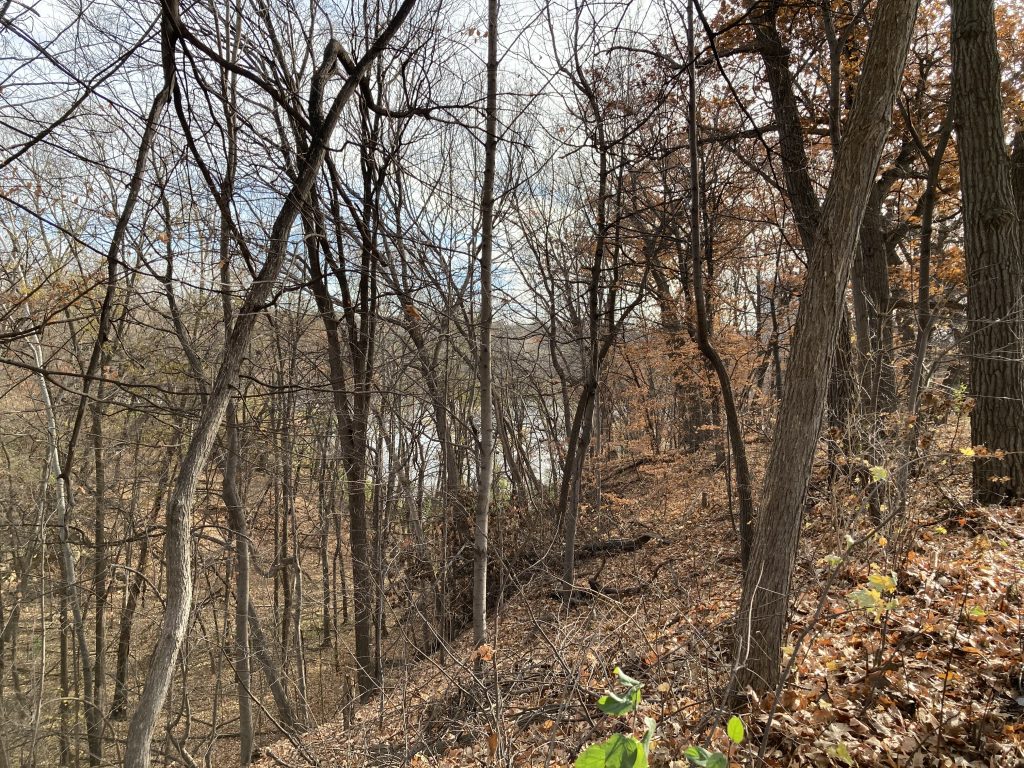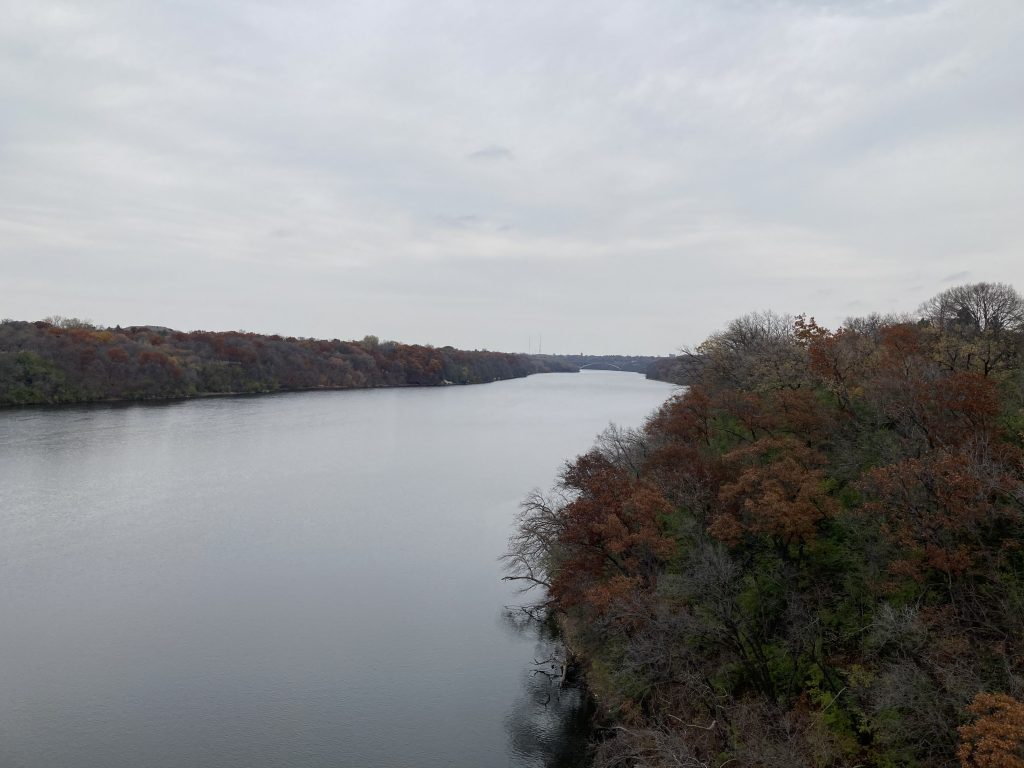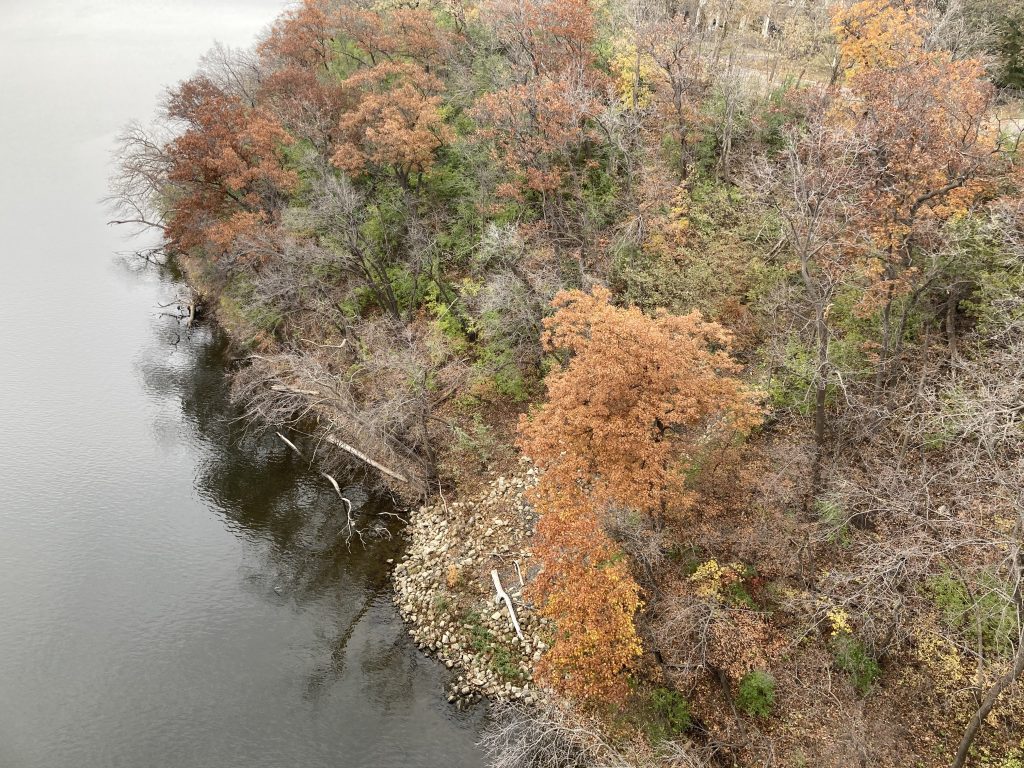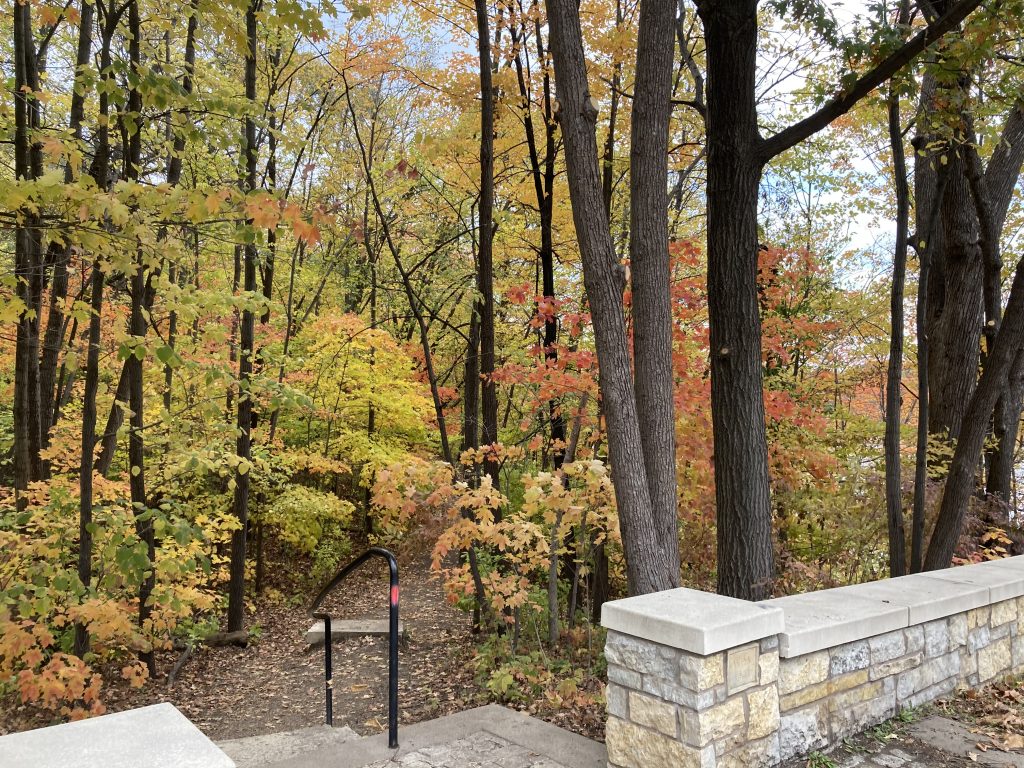5.5 miles
franklin hill turn around
15 degrees / feels like 2
The coldest day of the season. Brrr. Extra layers: 2 black tights, yellow shirt, pink jacket, purple jacket, 2 pairs of gloves — black and pink/white, buff, hat with ear flaps, hood. Difficult to breathe for the first mile. Sunny, lots of shadows. Greeted Dave, the Daily Walker. He was in his warmest attire, even had a stocking cap. There was ice near the shore of the river and sheets of ice on the surface of the water.
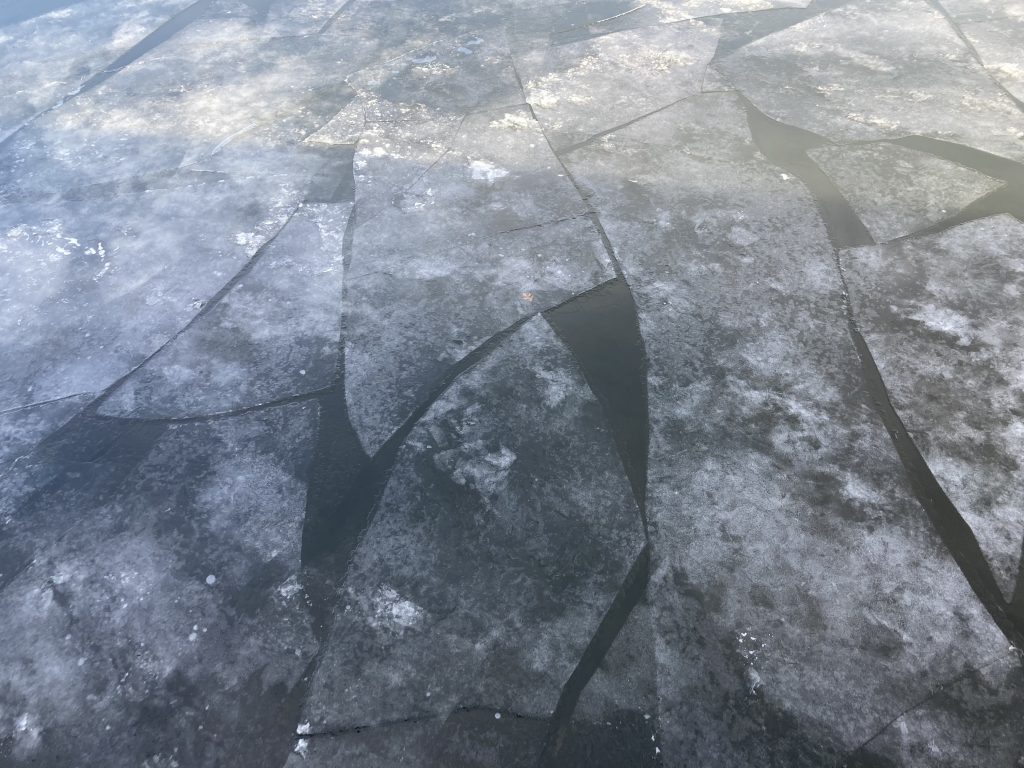
For the first 4 miles, I listened to my feet striking the ground, cars driving by, the wind. For the last 1.5 miles, I put in Olivia Rodrigo.
before the run
Still working on my haunts poems, adding more to the ones I wrote 2 years ago. Yesterday I spent a lot of time working on the first section, trails, and thinking about paths and feet and my interest in following, connecting, learning new stories. As part of that work, I started rereading Wendell Berry’s excellent essay, “A Native Hill.” This morning, before my run, I’m still reading and thinking about it. While I run, I’d like to think about this passage:
Looking out over the country, one gets a sense of the whole of it: the ridges and hollows, the clustered buildings of the farms, the open fields, the woods, the stock ponds set like coins into the slopes. But this is a surface sense, such as you get from looking down on the roof of a house. The height is a threshold from which to step down into the wooded folds of the land, the interior, under the trees and along the branching streams.
“A Native Hill” / Wendell Berry
As I run, I’d like to think about these ideas of threshold and surface, and what it means to be above, always, looping around the gorge, rarely entering it. Is this only surface level? What is at the surface, and is the surface always superficial? What does it mean when the gorge is not a thing to enter, but an absence, an emptiness/void that is still present and shaping the land but is inaccessible?
during the run
Did I think about these things at all? Maybe a little as I looked down at the floodplain forest or the water. At one point, I thought about how I’m not completely inside of this place, but I’m still much more in it than if I were riding in a car.
In a related but different direction of thought, I remembered the lines I had just written this morning:
It begins
here: from
the ground up
feet first,
following.
I want
to go where
others
already
have gone.
I thought about this following and how the others include past versions of me, the Saras that have already, day after day, year after year, travelled these same trails.
after the run
Sitting at my desk after my run, looking out at a mysterious pile of dirt left right in front of my sidewalk by workers for some unknown reason, feeling wiped out from the run, I’m not sure what to do with Berry’s passage. Maybe I’ll read some more of the essay?
Beyond the gate the land leans always more steeply towards the branch. I follow it down and then bear left along the crease at the bottom of the slope. I have entered the downflow of the land. The way I am going is the way the water goes. There is something comfortable and fit-feeling in this, something free in this yielding to gravity and taking the shortest way down.
“A Native Hill” / Wendell Berry
I love this line: The way I am going is the way the water goes.
Berry talks next about human-made erosion and how he laments the loss of land “before the white people drove their plows into it.”
It is not possible to know what was the shape of the land here in this hollow when it was first cleared. Too much of it is gone, loosened by the plows and washed away by the rain….The thought of what was here once and is gone forever will not leave me as long as I live. It is as though I walk knee-deep in its absence.
“A Native Hill” / Wendell Berry
The slopes along the hollow steepen still more, and I go in under the trees. I pass beneath the surface. I am enclosed, and my sense, my interior sense, of the country becomes intricate. There is no longer the possibility of seeing very far. The distances are closed off by the trees and the steepening walls of the hollow. One cannot grow familiar here by sitting and looking as one can up in the open on the ridge. Here the eyes become dependent on the feet. To see the woods from the inside one must look and move and look again. It is inexhaustible in its standpoint. A lifetime will not be enough to experience it all.
“A Native Hill” / Wendell Berry
Love it: Here the eyes become dependent on the feet. I’m finding a place for this line in my poem! Even when I am on the edge of the bluff looking down at the gorge, my vision isn’t very good. Everywhere I run, above or below, I’m dependent on my feet, and not just to get me to new places to see; sometimes I see with my feet.
Berry’s last lines about it being inexhaustible and how a lifetime will not be enough to experience it all brings me to another definition of going beyond the surface: to do more than briefly visit, to stay somewhere (to haunt it), to return to it again and again, each time learning something new, or encountering something slightly altered. This returning to the gorge day after day and giving attention is my way of connecting with it and attempting to experience as much of it as I can.
